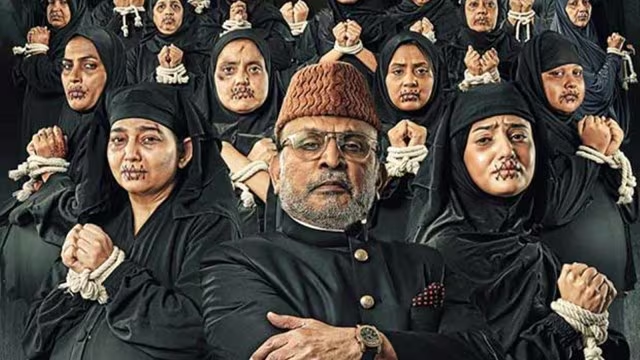The Indian Supreme Court has intervened to stop the release of the film “Hamare Baarah,” originally scheduled for Friday, citing concerns that the movie is offensive to Muslims.
The Court described the film’s teaser as “so offensive” that it warranted a stay on the movie’s release.
On Thursday, the Supreme Court directed the Bombay High Court to make a ruling on a petition claiming that “Hamare Baarah,” directed by Kamal Chandra, denigrates the Islamic faith and married Muslim women in India.
According to Live Law, the Supreme Court has paused the film’s release until the Bombay High Court makes its decision on the matter.
The Supreme Court’s decision came after it reviewed an earlier high court order that allowed the film’s release
The Court noted that the teaser alone raised significant concerns about the film’s content.
The petition filed in the Bombay High Court argued that the movie, which was set to release on June 7, disrespects the Islamic faith and misrepresents a verse from the Quran.
The petitioner contended that releasing the film would violate Article 19(2) of the Constitution, which allows for reasonable restrictions on free speech for the sake of security and sovereignty, and Article 25, which ensures the right to freely practice one’s religion.
The petition called on the high court to order the Central Board of Film Certification (CBFC) to revoke the film’s certification and prevent its release.
The CBFC responded by stating that the film’s certification followed all necessary procedures and that any objectionable content had been removed.
It also clarified that the snippets available online were not certified trailers.
Initially, the high court had found merit in the petitioner’s claims and halted the film’s release until June 14.
It then instructed the CBFC to review the film again. However, the CBFC review panel requested more time for a detailed response, leading the high court to permit the film’s release.
Unhappy with this decision, the petitioner escalated the issue to the Supreme Court. Advocate Fauzia Shakil, representing the petitioner, argued that the high court’s decision to let the CBFC, an “interested party,” review the film was problematic.
In rebuttal, the filmmaker’s counsel argued that the offensive scenes had been removed.
However, the Supreme Court dismissed this claim, noting that they had reviewed the teaser and found all the controversial scenes still present.
The Court emphasized that if the teaser was so offensive, the full movie could be more problematic.
Consequently, it directed the high court to examine the case thoroughly and stayed the film’s release.
The Supreme Court also allowed the petitioner to raise further objections regarding the CBFC review panel.
This Supreme Court decision followed a similar move by the Karnataka government on June 5, which barred the film’s release for two weeks due to concerns about potential communal unrest, responding to petitions from various Muslim organizations.

